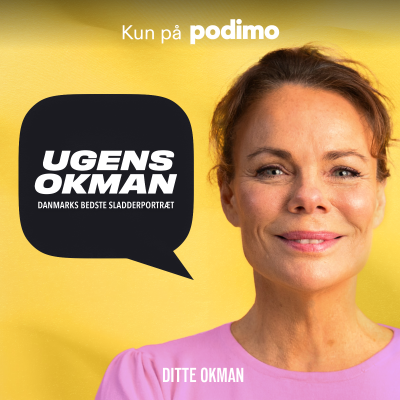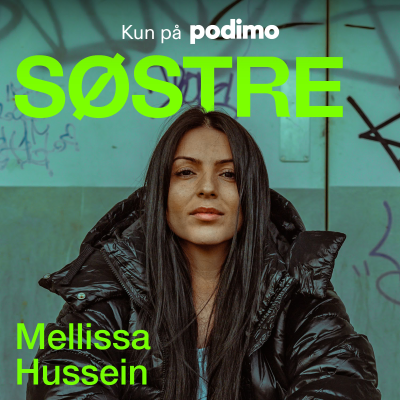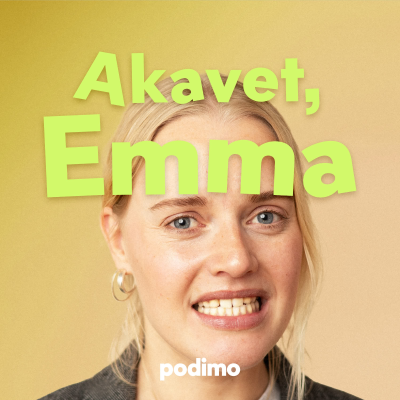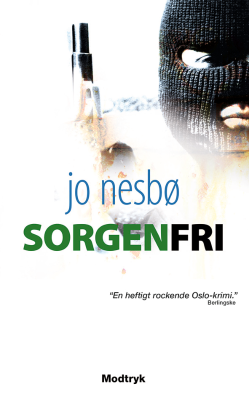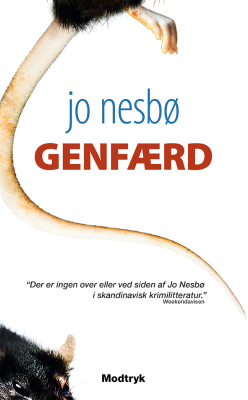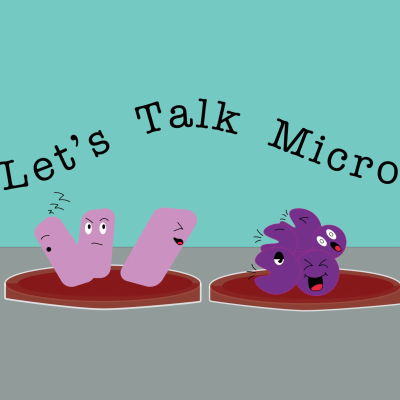
Let's Talk Micro
engelsk
Videnskab & teknologi
Prøv gratis i 14 dage
99 kr. / måned efter prøveperioden.Opsig når som helst.
- 20 lydbogstimer pr. måned
- Podcasts kun på Podimo
- Gratis podcasts
Læs mere Let's Talk Micro
Clinical microbiology explained in simple terms, suitable for students and microbiologists alike. We discuss organisms, reactions, infectious diseases, and more. Hosted by Luis Plaza, a Medical Laboratory Scientist and microbiologist, who also shares his experiences in the field.
Alle episoder
229 episoder222: Parasites, Pediatrics, and the Lab: A Study from Guinea, West Africa
In this episode of Let's Talk Micro, Luis is joined by Dr. Joel Mortensen to discuss a study examining intestinal parasites in pediatric patients in Guinea, West Africa. They dive into the real-world challenges of diagnosing parasitic infections in resource-limited settings, including reliance on stool microscopy, the use of rapid antigen tests, and how seasonal changes influence infection rates. Dr. Mortensen walks us through the study design, key findings, and what the data revealed about protozoal infections, as well as the role of microscopy in identifying helminths in this setting. This conversation highlights the critical role of clinical microbiology in global health, the importance of diagnostic context, and how laboratory data can directly inform patient care and public health strategies in underserved regions. Check out Dr. Joel Mortensen's previous episodes If you enjoyed this conversation, be sure to check out previous episodes featuring Dr. Mortensen, where we dive deeper into his work in Guinea, laboratory capacity building, and global health challenges in resource-limited settings: * 🎙️ Episode 107: A Pediatric Hospital in Guinea – Pt. 1 https://directory.libsyn.com/episode/index/id/35868465 [https://directory.libsyn.com/episode/index/id/35868465] * 🎙️ Episode 108: A Pediatric Hospital in Guinea – Pt. 2 https://directory.libsyn.com/episode/index/id/35868460 [https://directory.libsyn.com/episode/index/id/35868460] These episodes provide important background on the hospital, training efforts, and the broader impact of this work. 🔗 Other Links Learn more about Sacre Coeur Hospital and the pediatric care and laboratory work being done in Guinea: 👉 https://www.hopeignited.org/sacre-coeur [https://www.hopeignited.org/sacre-coeur] 📩 Want to get involved or learn more? If you're interested in learning more about this work, collaborating, or supporting efforts in Guinea, you can reach out directly to Dr. Joel Mortensen: 📧 joelmortensen@gmail.com You can also contact me at letstalkmicro@gmail.com, and I'm happy to help connect you. Stay connected with Let's Talk Micro: * Website: letstalkmicro.com [https://www.letstalkmicro.com/] * Questions or feedback? Email me at letstalkmicro@outlook.com [letstalkmicro@outlook.com] * Interested in being a guest on Let's Talk Micro? Fill out the form here: https://forms.gle/V2fT3asjfyusmqyi8 [https://forms.gle/V2fT3asjfyusmqyi8] Support the podcast: * Venmo [https://venmo.com/u/letstalkmicro] * Buy me a Ko-fi [https://ko-fi.com/letstalkmicro]
221: Beyond the Plate: Your Isolates and Genomic Epidemiology
Genomic epidemiology is reshaping how we detect, investigate, and control infectious disease outbreaks—but what does that actually look like from the bench to public health? In this episode of Let's Talk Micro, Luis is joined by genomic epidemiologist Krisandra Allen for a practical, case-based conversation on how pathogen sequencing data is generated, analyzed, and paired with epidemiologic information to answer questions traditional methods can't. They discuss foodborne and hepatitis A outbreaks, geographically dispersed clusters, and how sequencing is being integrated into routine public health workflows, while highlighting the essential role of clinical microbiology labs in specimen submission and data quality. A timely episode for microbiologists, public health professionals, and trainees curious about how their lab work feeds into real-world surveillance and outbreak response. Stay connected with Let's Talk Micro: * Website: letstalkmicro.com [https://www.letstalkmicro.com/] * Questions or feedback? Email me at letstalkmicro@outlook.com [letstalkmicro@outlook.com] * Interested in being a guest on Let's Talk Micro? Fill out the form here: https://forms.gle/V2fT3asjfyusmqyi8 [https://forms.gle/V2fT3asjfyusmqyi8] Support the podcast: * Venmo [https://venmo.com/u/letstalkmicro] * Buy me a Ko-fi [https://ko-fi.com/letstalkmicro]
220: New Clinical Microbiology Certification Pathway at UF
In this episode of Let's Talk Micro, Luis is joined by faculty and collaborators from the University of Florida to discuss their new Clinical Laboratory Microbiologist (CLM) program — the first NAACLS-approved, microbiology-only certification pathway in the United States. They share how the program was created to address the growing shortage of clinical microbiologists and provide a direct pathway for microbiology graduates and working professionals to enter the clinical laboratory. The conversation covers: * Gaps in the current workforce and training pipeline * The hybrid model combining online coursework, hands-on bootcamp labs, and local clinical internships * Real-world training with clinical lab technology such as MALDI-TOF, PCR, and blood culture systems * Preparation for the ASCP categorical microbiology certification exam * The strong nationwide interest in the program The episode closes with a fun discussion on everyone's favorite microbes. Whether you're a student, lab professional, or educator, this episode offers insight into the future of clinical microbiology training. Additional resources: * ASCP Categorical Certification (Microbiology) https://www.ascp.org/boc/explore-credentials/view-all-credentials/M [https://www.ascp.org/boc/explore-credentials/view-all-credentials/M] * University of Florida Clinical Laboratory Microbiologist (CLM) Program https://microbiologyonline.ifas.ufl.edu/programs/clinical-laboratory-microbiologist/ [https://microbiologyonline.ifas.ufl.edu/programs/clinical-laboratory-microbiologist/] * GIDEON (Global Infectious Diseases and Epidemiology Network) https://www.gideononline.com/ [https://www.gideononline.com/] Stay connected with Let's Talk Micro: * Website: letstalkmicro.com [https://www.letstalkmicro.com/] * Questions or feedback? Email me at letstalkmicro@outlook.com [letstalkmicro@outlook.com] * Interested in being a guest on Let's Talk Micro? Fill out the form here: https://forms.gle/V2fT3asjfyusmqyi8 [https://forms.gle/V2fT3asjfyusmqyi8] Support the podcast: * Venmo [https://venmo.com/u/letstalkmicro] * Buy me a Ko-fi [https://ko-fi.com/letstalkmicro]
219: Tick-Borne Diseases: The Lab and Diagnostics
Tick-borne diseases continue to expand across North America, but diagnosing them in the clinical laboratory remains complex—especially when timing between symptom onset and testing isn't considered. In this episode of Let's Talk Micro, Luis is joined by Kyle Rodino, Assistant Professor of Pathology and Laboratory Medicine at the University of Pennsylvania and Assistant Director of Microbiology, for a lab-focused discussion on tick-borne disease diagnostics. They cover major bacterial, parasitic, and viral causes of tick-borne disease, and walk through how molecular testing, serology, and microscopy are used at different stages of illness. The conversation highlights why test selection and timing matter, common diagnostic challenges—particularly with Babesia and Lyme disease testing—and how laboratories can support better diagnostic decision-making. A practical episode for microbiologists, laboratorians, and clinicians navigating real-world testing challenges in the lab. Additional resources: Update on North American tick-borne diseases and how to diagnose them https://doi.org/10.1128/jcm.00807-23 [https://doi.org/10.1128/jcm.00807-23] Stay connected with Let's Talk Micro: * Website: letstalkmicro.com [https://www.letstalkmicro.com/] * Questions or feedback? Email me at letstalkmicro@outlook.com [letstalkmicro@outlook.com] * Interested in being a guest on Let's Talk Micro? Fill out the form here: https://forms.gle/V2fT3asjfyusmqyi8 [https://forms.gle/V2fT3asjfyusmqyi8] Support the podcast: * Venmo [https://venmo.com/u/letstalkmicro] * Buy me a Ko-fi [https://ko-fi.com/letstalkmicro]
218: Metagenomics in Clinical Microbiology
In this episode of Let's Talk Micro, we break down metagenomic next-generation sequencing (mNGS) and how it's changing the way we diagnose complex infectious diseases. I'm joined by Steve Miller, MD, PhD—Chief Medical Officer at Delve Bio—to discuss how unbiased metagenomics moved from research labs into real-world clinical practice. We cover what metagenomics is, how it differs from targeted PCR and sequencing, and where it adds the most value—especially in meningitis and encephalitis, immunocompromised patients, and cases where routine testing comes back negative. Dr. Miller shares insights from years of clinical experience, including how mNGS can improve diagnostic yield, shorten time to diagnosis, guide targeted therapy, and reduce unnecessary testing and hospital stays. We also touch on challenges like cost, result interpretation, diagnostic stewardship, and where metagenomics is headed next—including its role in public health and emerging infections. Links & Resources * Clinical metagenomics for meningitis and encephalitis (Nature Medicine) https://www.nature.com/articles/s41591-024-03275-1 [https://www.nature.com/articles/s41591-024-03275-1] Stay connected with Let's Talk Micro: * Website: letstalkmicro.com [https://www.letstalkmicro.com/] * Questions or feedback? Email me at letstalkmicro@outlook.com [letstalkmicro@outlook.com] * Interested in being a guest on Let's Talk Micro? Fill out the form here: https://forms.gle/V2fT3asjfyusmqyi8 [https://forms.gle/V2fT3asjfyusmqyi8] Support the podcast: * Venmo [https://venmo.com/u/letstalkmicro] * Buy me a Ko-fi [https://ko-fi.com/letstalkmicro]
Vælg dit abonnement
Premium
20 timers lydbøger
Podcasts kun på Podimo
Gratis podcasts
Opsig når som helst
Prøv gratis i 14 dage
Derefter 99 kr. / måned
Premium Plus
100 timers lydbøger
Podcasts kun på Podimo
Gratis podcasts
Opsig når som helst
Prøv gratis i 7 dage
Derefter 129 kr. / måned
Prøv gratis i 14 dage. 99 kr. / måned efter prøveperioden. Opsig når som helst.






